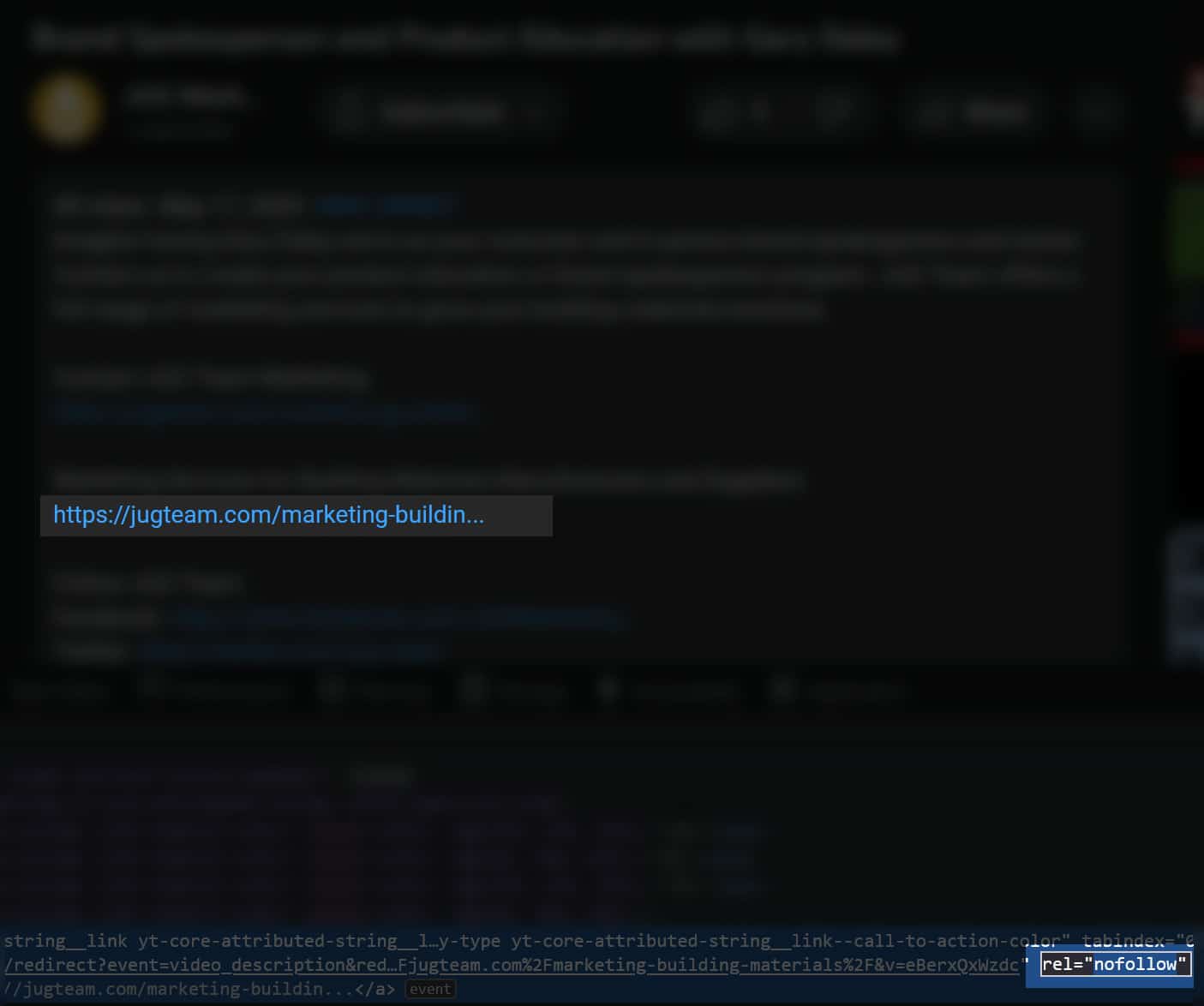When getting established with a new online property one of the most challenging tasks for white-hat SEO professionals is obtaining reputable backlinks. One strategy that is often floated is to use YouTube video and channel descriptions to backlink to the website’s primary domain. Do YouTube links really help SEO? Is there any reason to do this?
Google has clearly stated that links from YouTube are all set to “nofollow”, meanwhile other people say that you can get around this with a dofollow link. What even is a dofollow link? Can you make a dofollow link by adding rel=”dofollow”? Is there some magic property or is this just nonsense advice?
Can I just add “dofollow” to change it or is there another HTML property that will work?
No. JUG Team has investigated this and as far as we can determine this dofollow stuff is clickbait nonsense. There’s no google SEO benefit to links from YouTube – they are all nofollow as can be seen in the source code shown above. Numerous sources have confirmed this.
“dofollow, “do-follow”, and “follow” are NOT real HTML properties. It’s just something people make up to get views and traffic. You might as well add rel=”bigfoot”. Dofollow our advice: use YouTube backlinks to get visitors to relevant and engaging content on your site.
Is there any benefit for SEO with YouTube backlinks?
While backlinks on YouTube don’t give you direct SEO link-juice, they do work as links and can be discovered within YouTube’s searches. This means they work like any other content and instead of optimizing for a google search, you YouTube descriptions should be optimized for search WITHIN YouTube. Think of YouTube as the second most popular search engine after google.
- Referral traffic: Users who come across your YouTube videos and click on the links in the video descriptions can still be directed to your website. This can result in increased traffic, potential conversions, and engagement.
- Brand visibility and exposure: Backlinks from YouTube videos can help increase the visibility and exposure of your brand. If your videos gain popularity or are shared by influential users, it can lead to greater brand recognition and potentially attract organic mentions or backlinks from other sources.
- Social signals: Engagement metrics on YouTube, such as likes, comments, shares, and views, can indirectly influence search engine rankings. Positive user signals can indicate to search engines that your content is valuable and relevant, potentially improving your organic search visibility.
- Diversification of backlink profile: While nofollow links may not pass authority, having a diverse backlink profile that includes links from various reputable sources is still beneficial. It can demonstrate to search engines the naturalness and diversity of your website’s link profile.
While backlinks from YouTube are nofollow, it’s important to consider them as part of a broader marketing and branding strategy. YouTube is a popular platform with a large user base, and utilizing it effectively can contribute to your overall online presence and visibility. Additionally, YouTube videos themselves can rank in search results and attract organic traffic, further benefiting your website.
